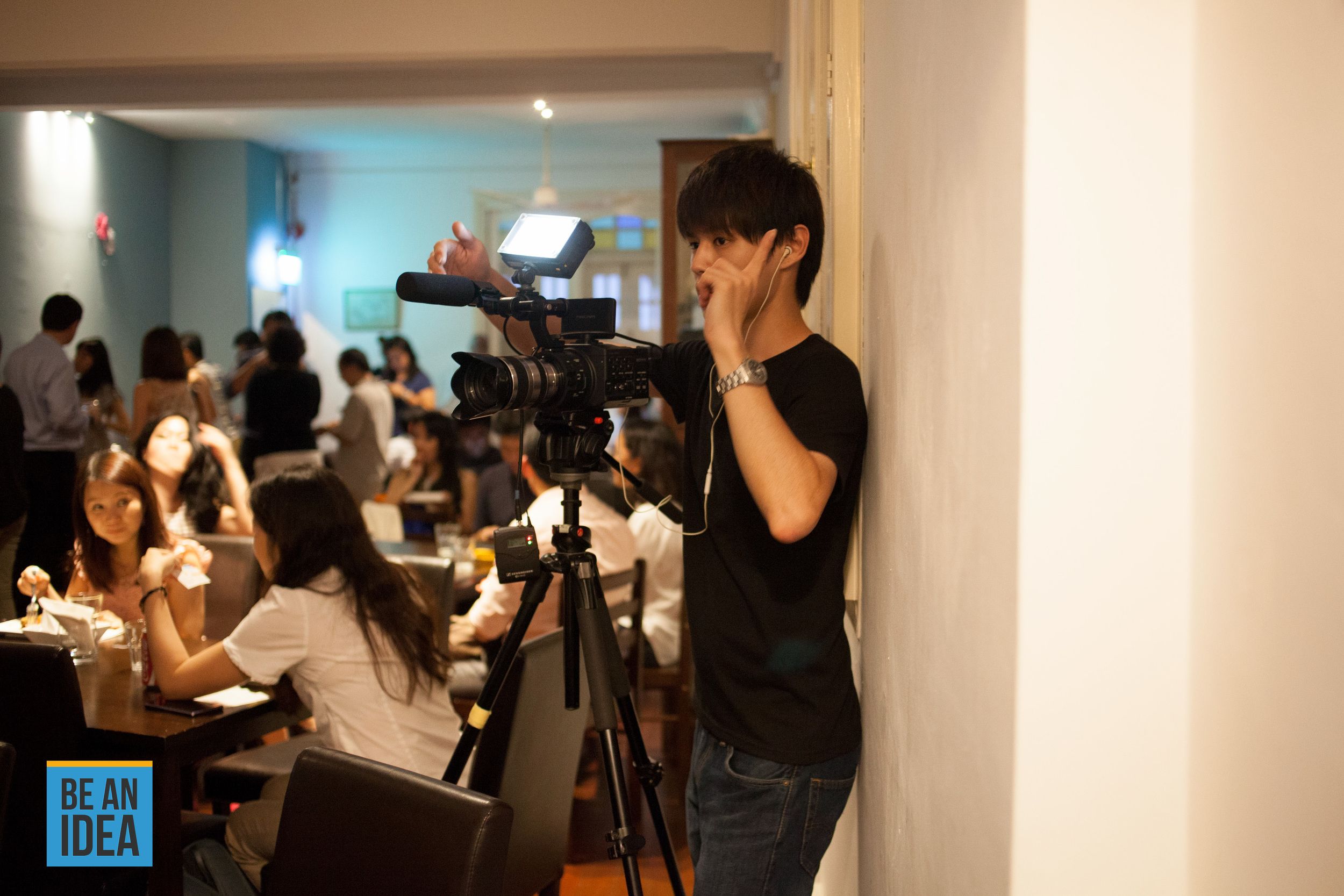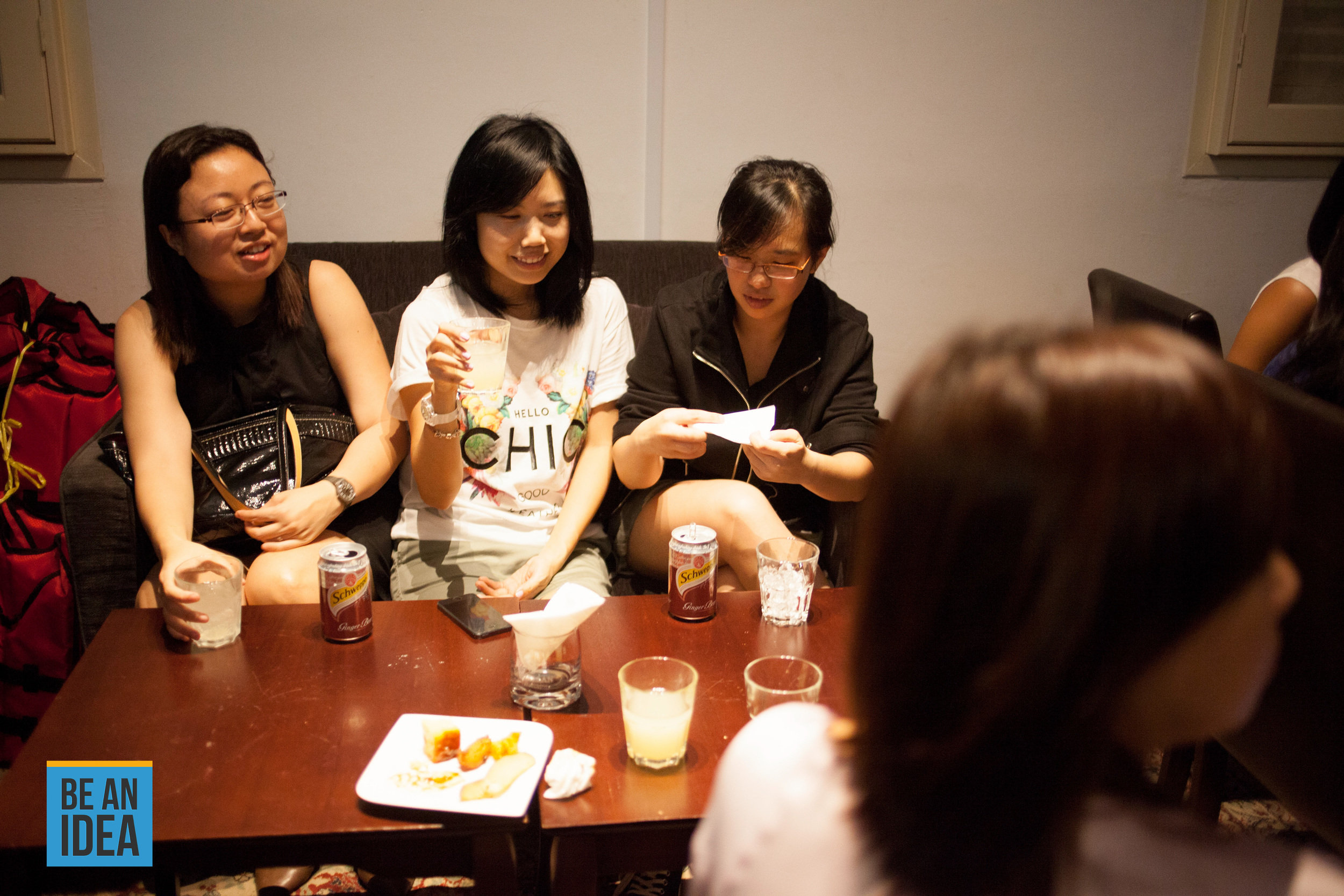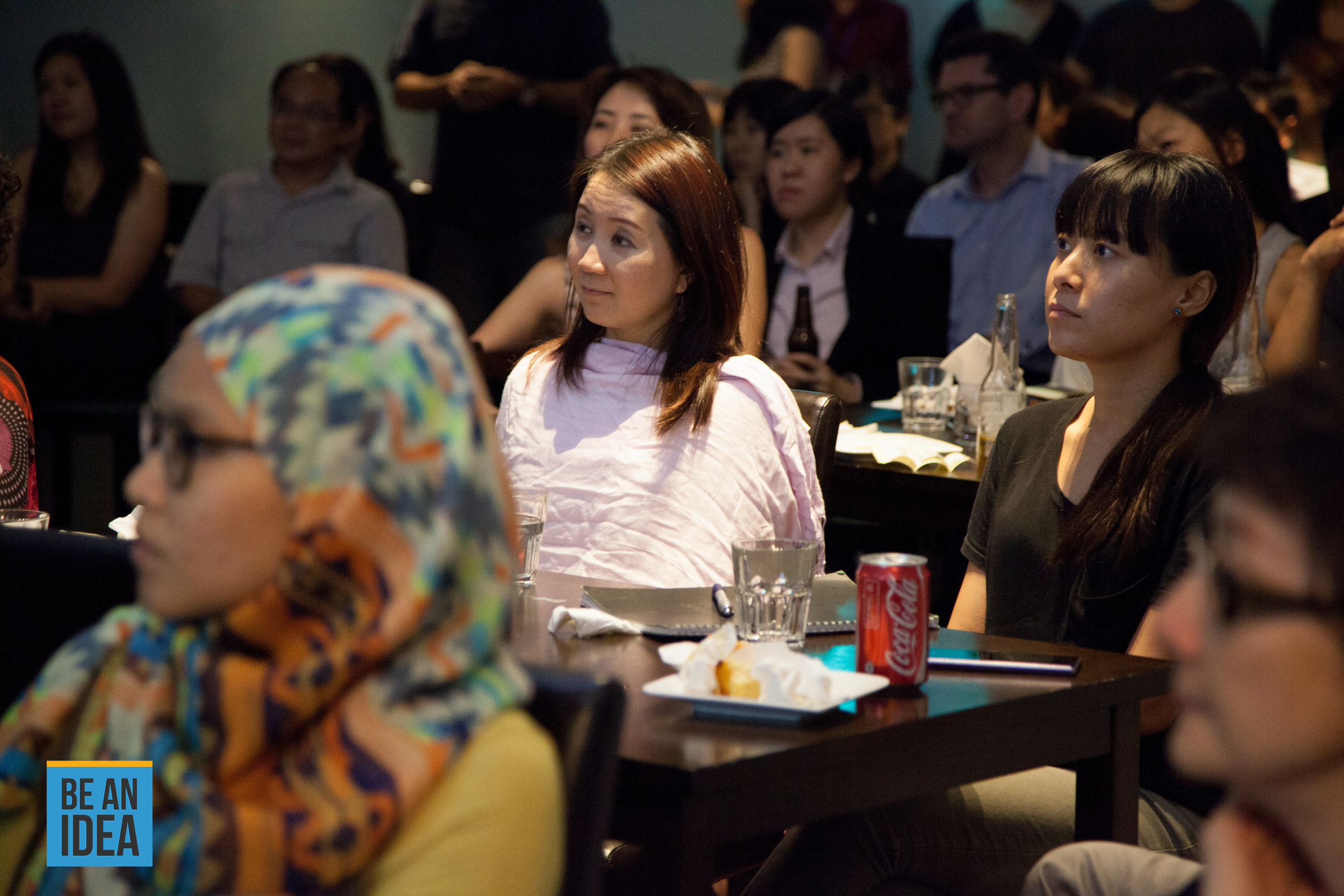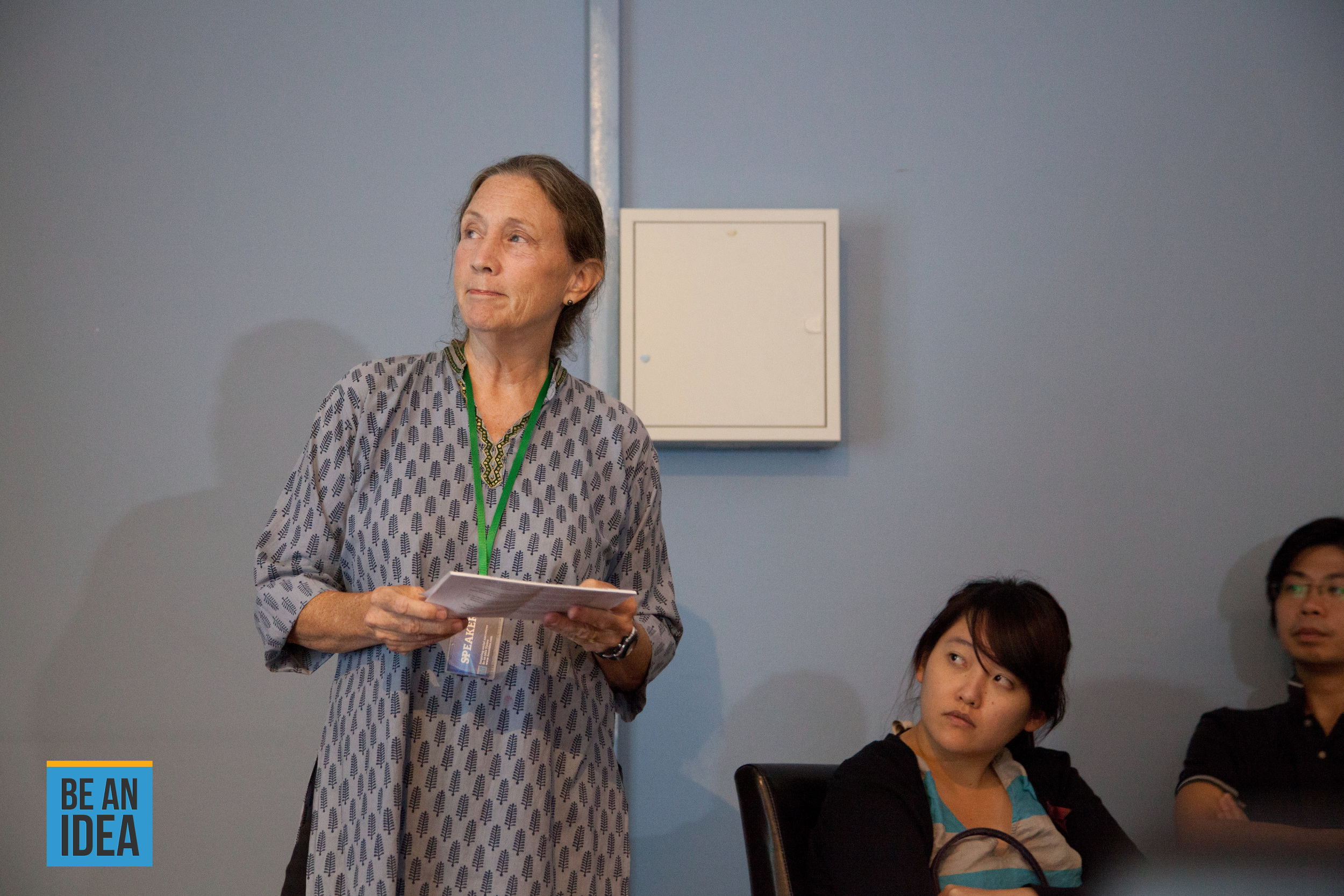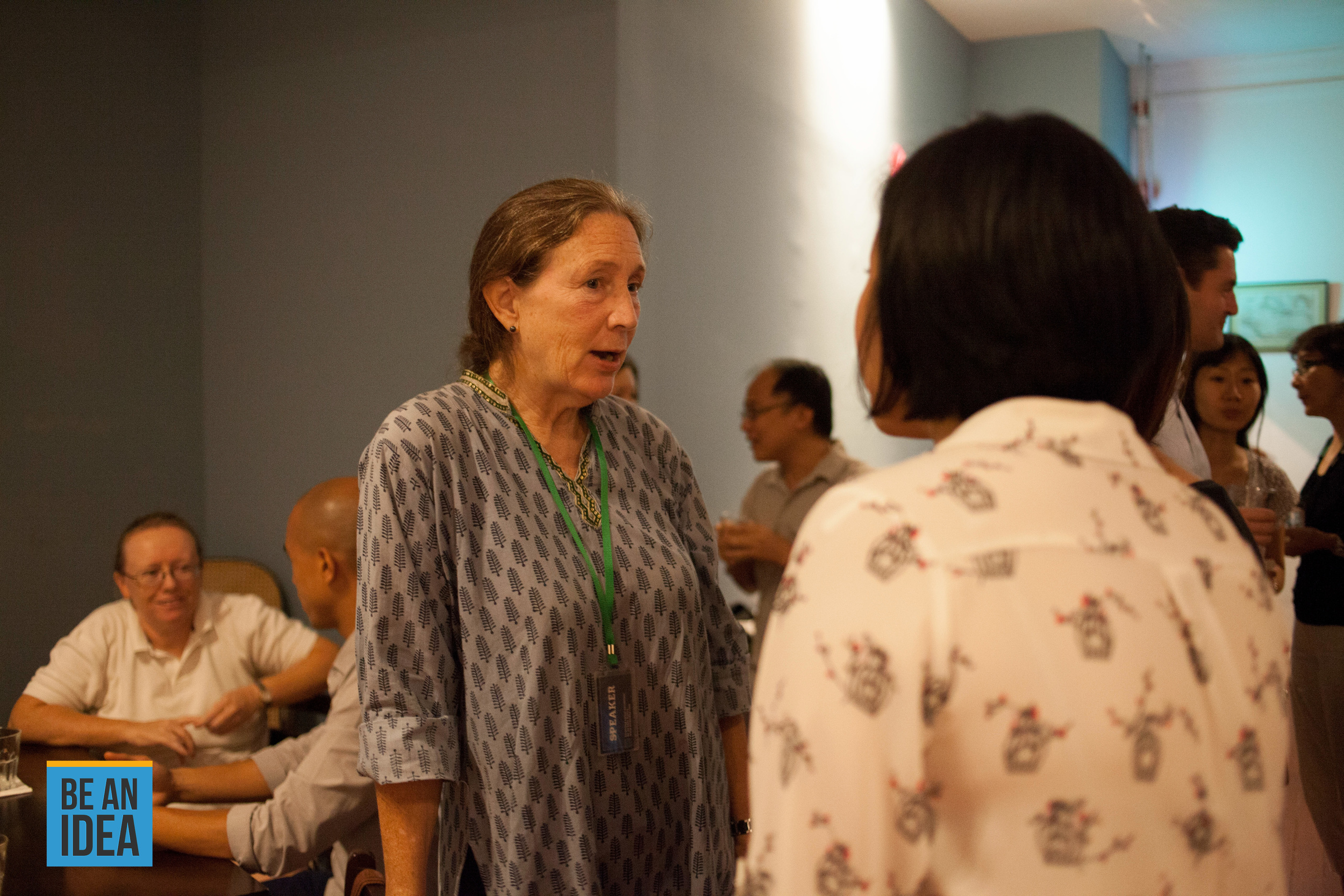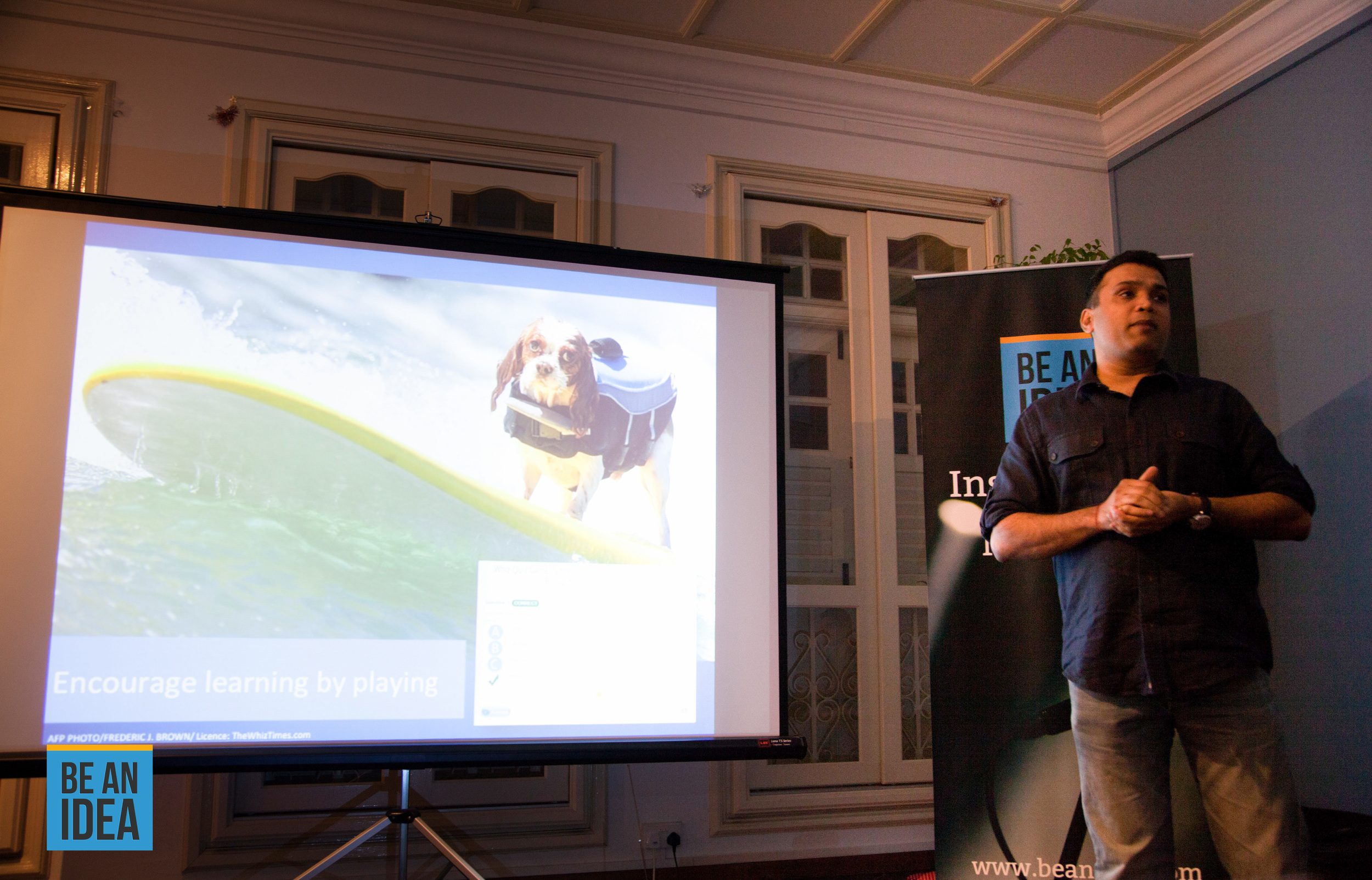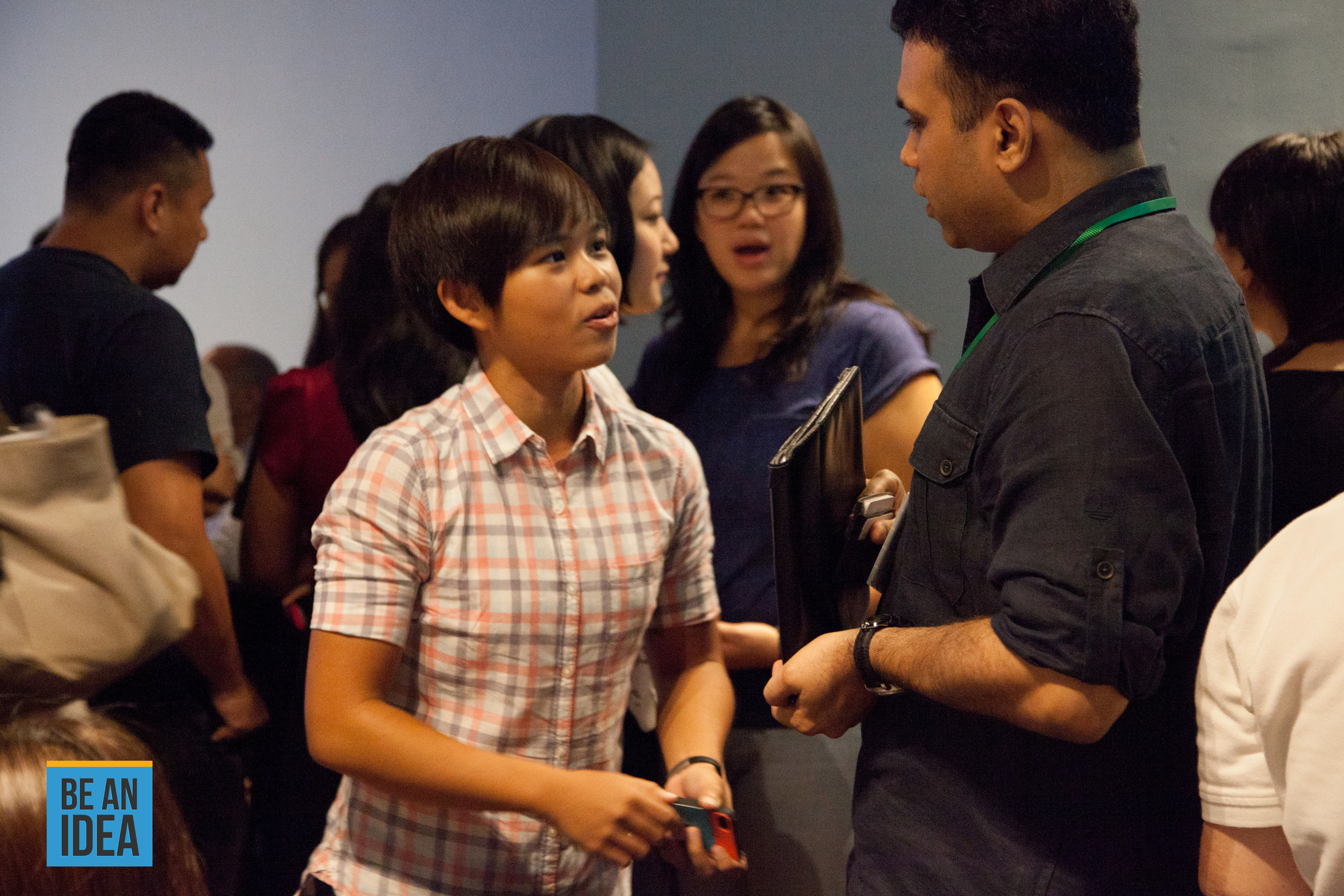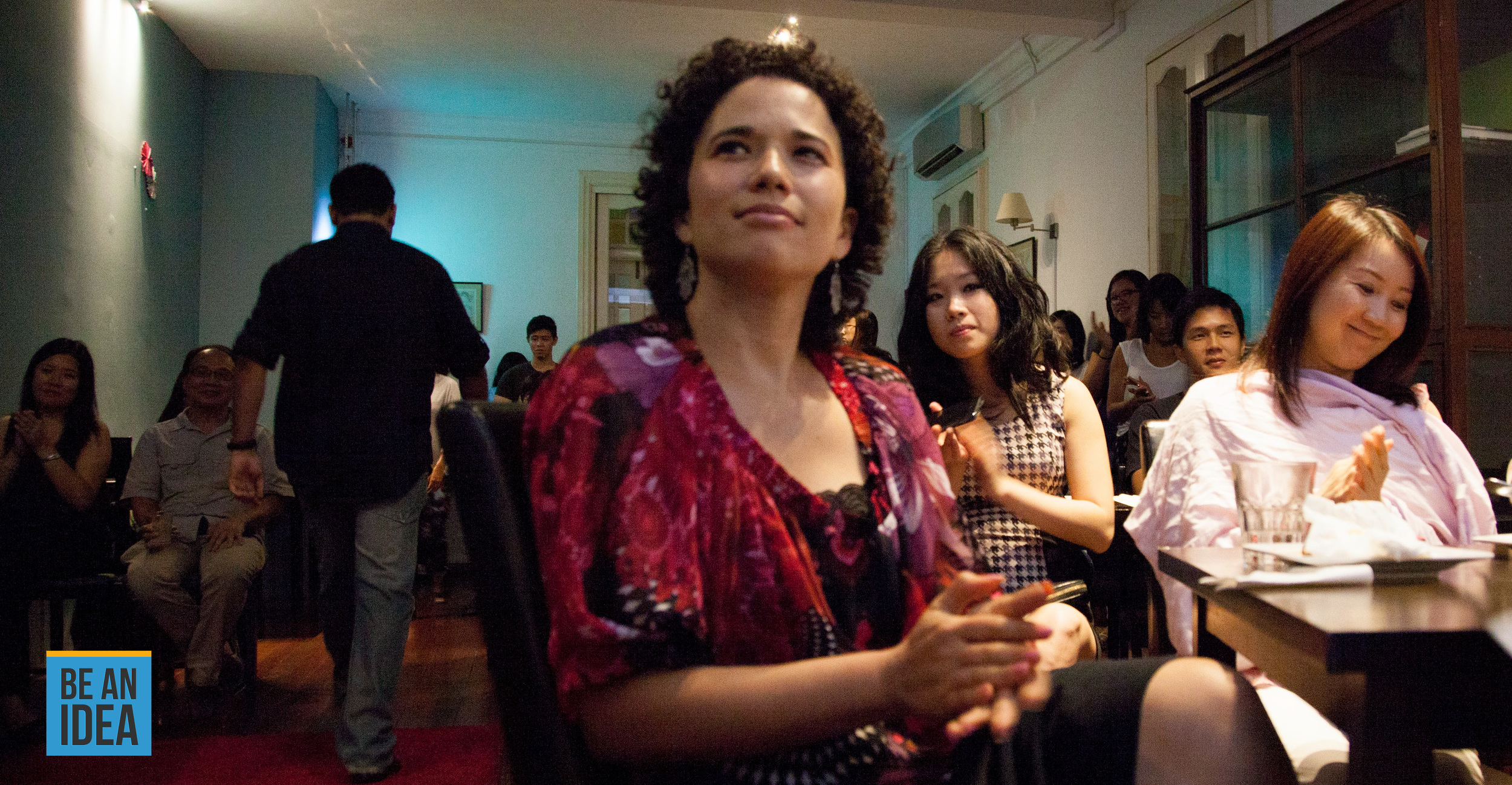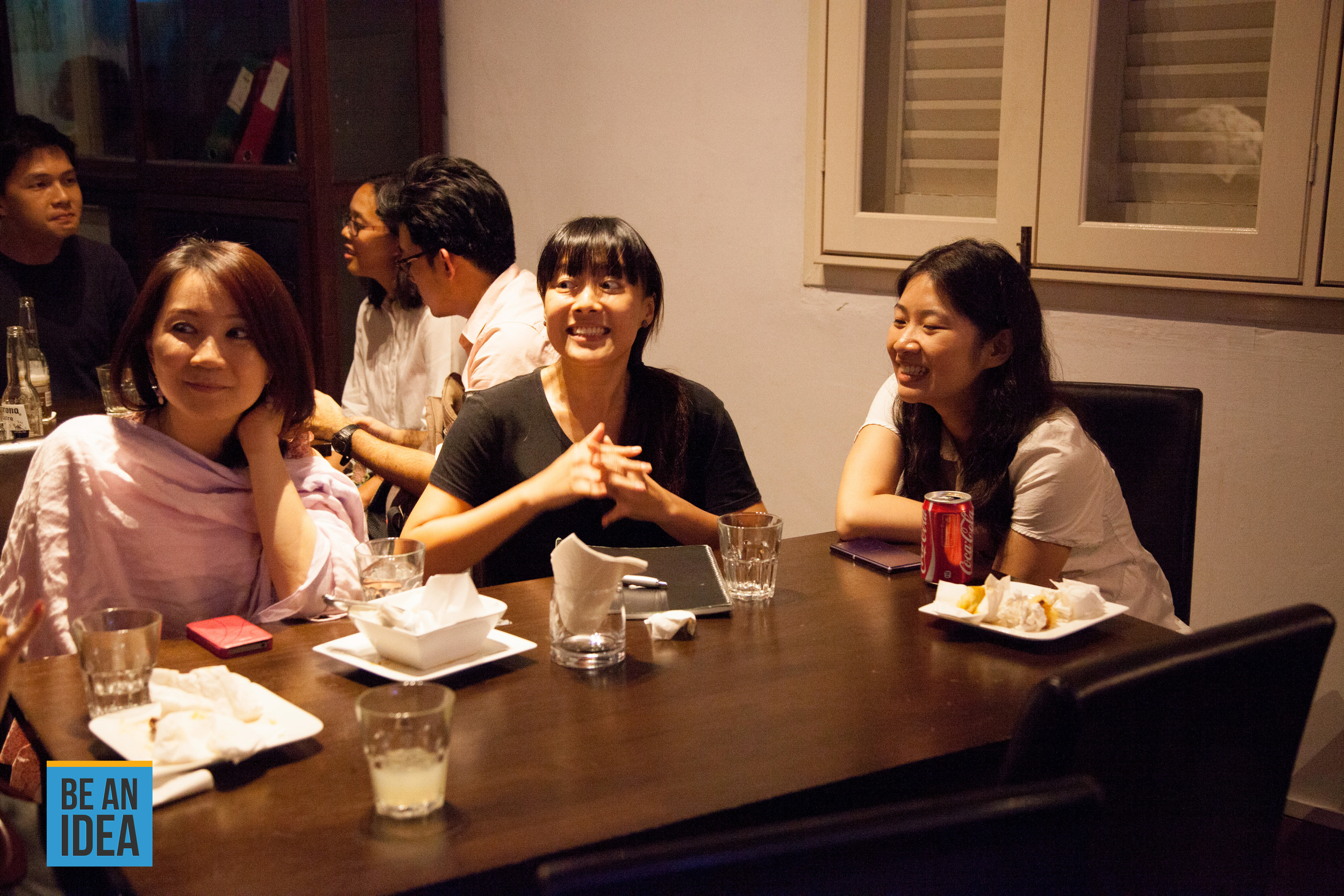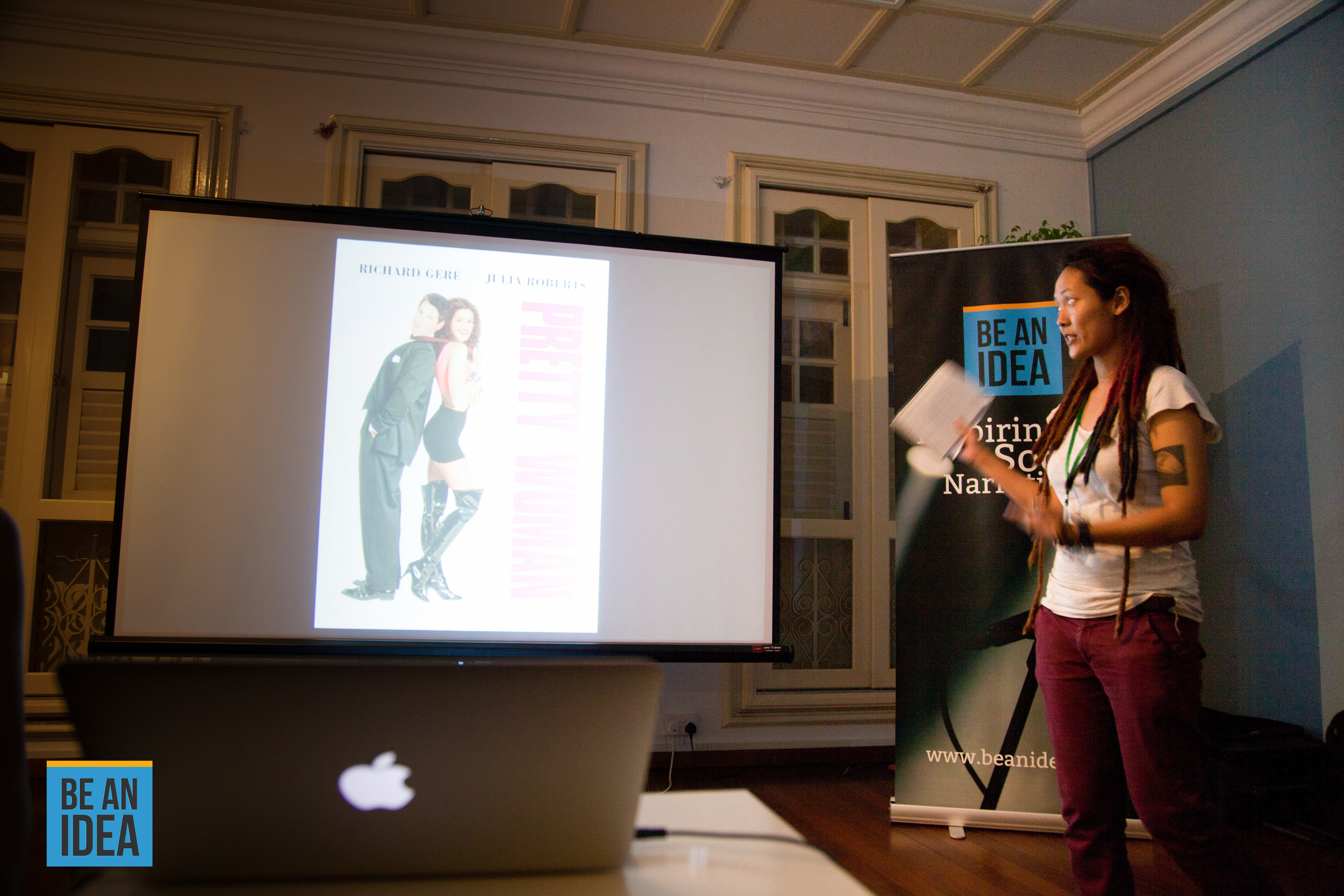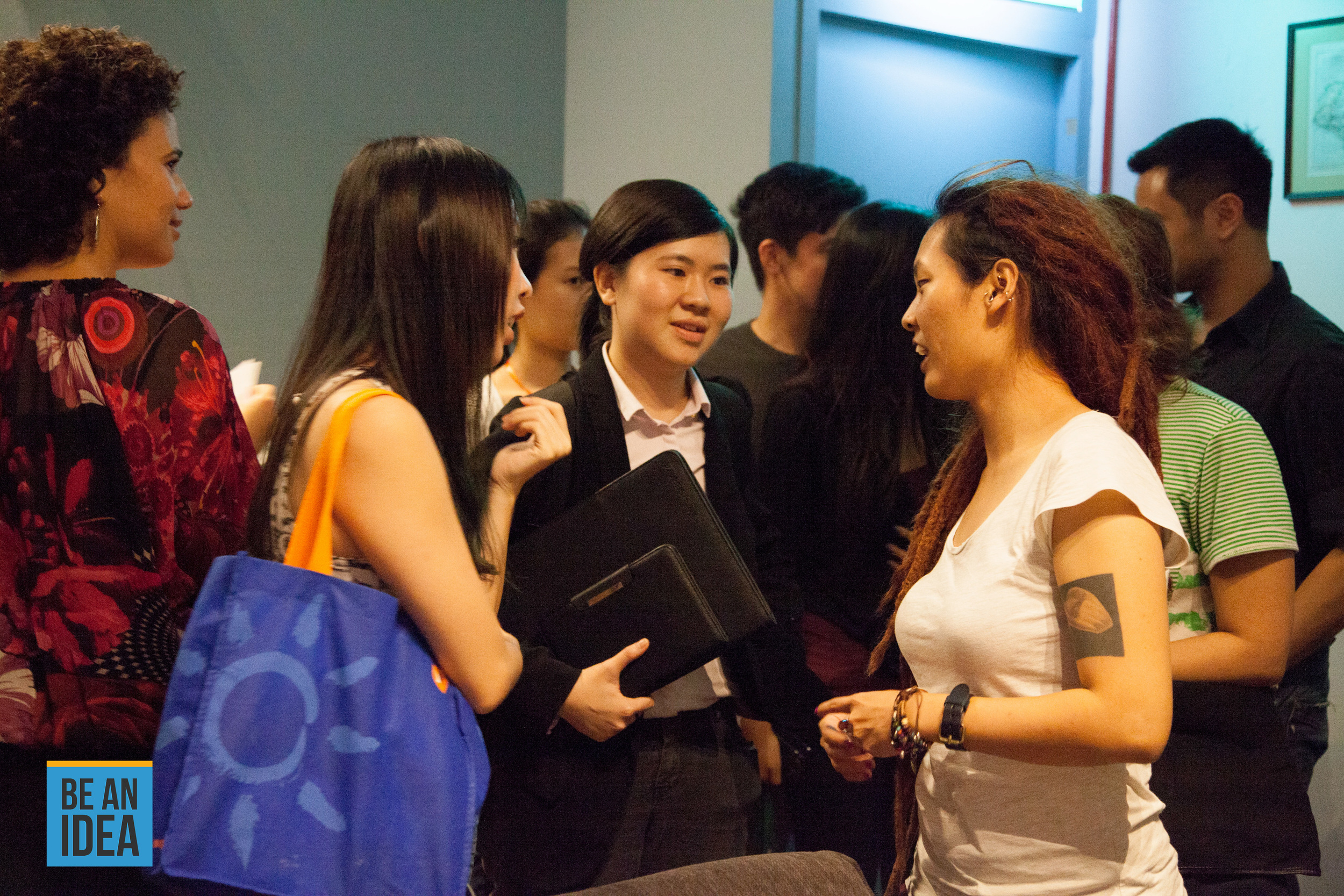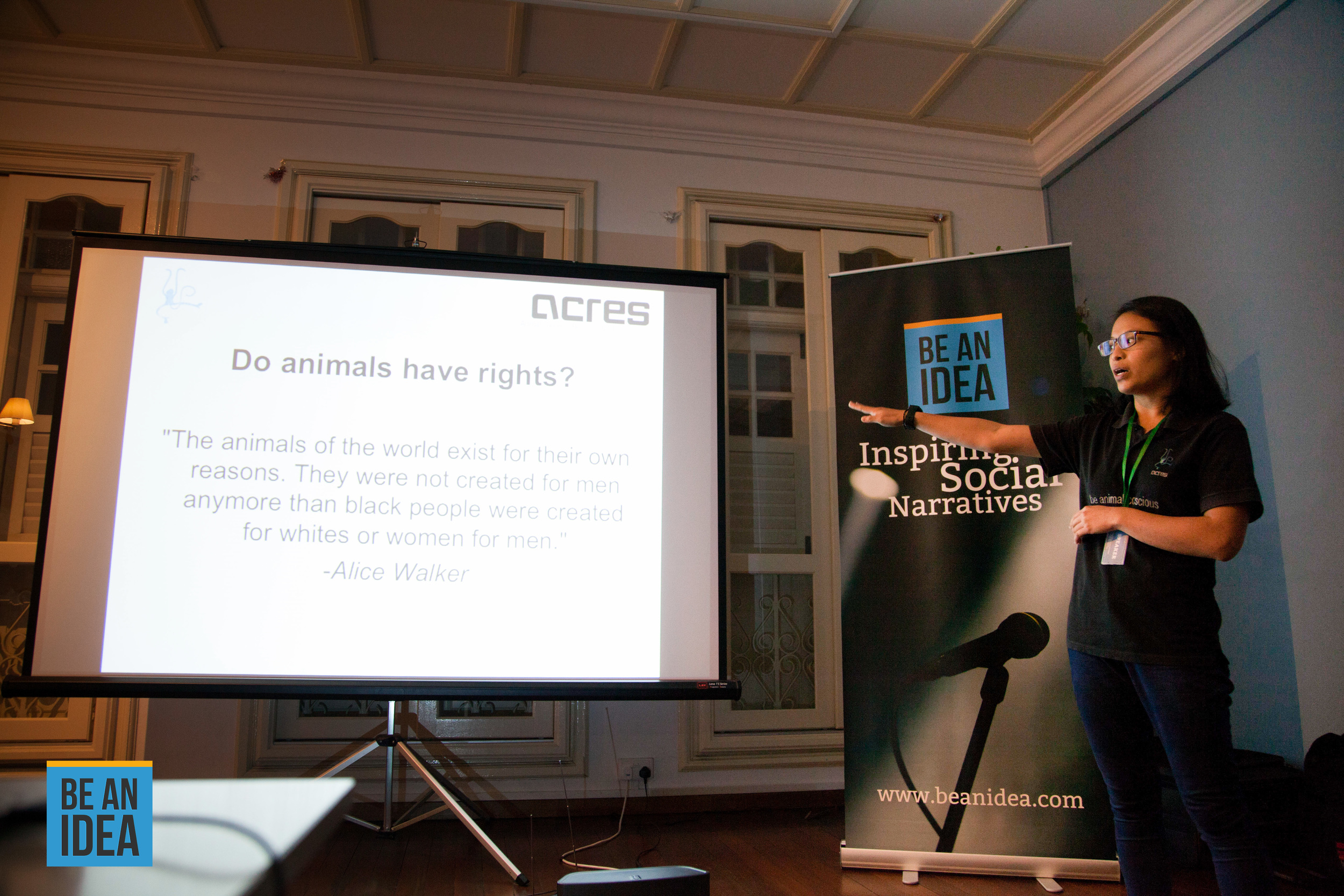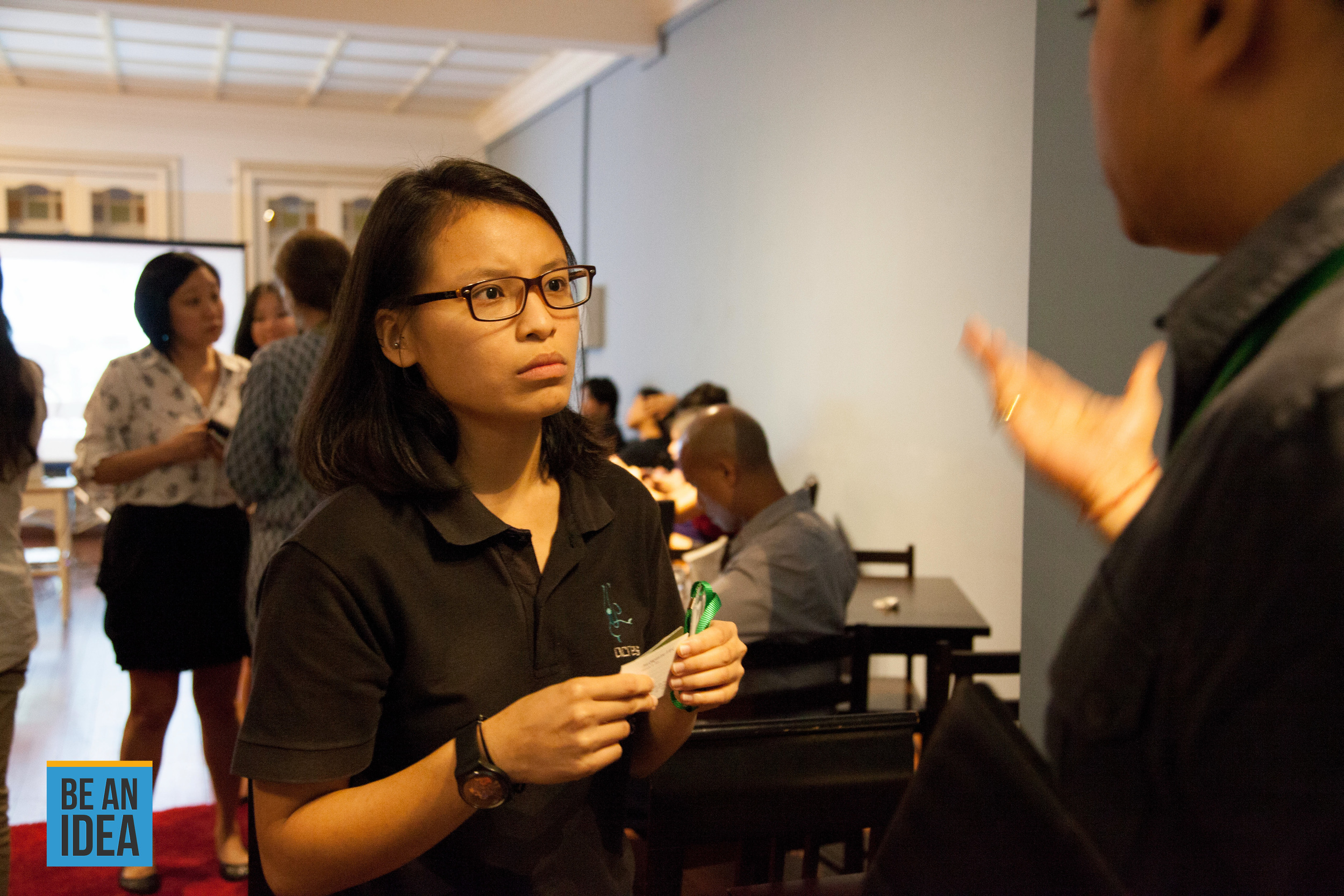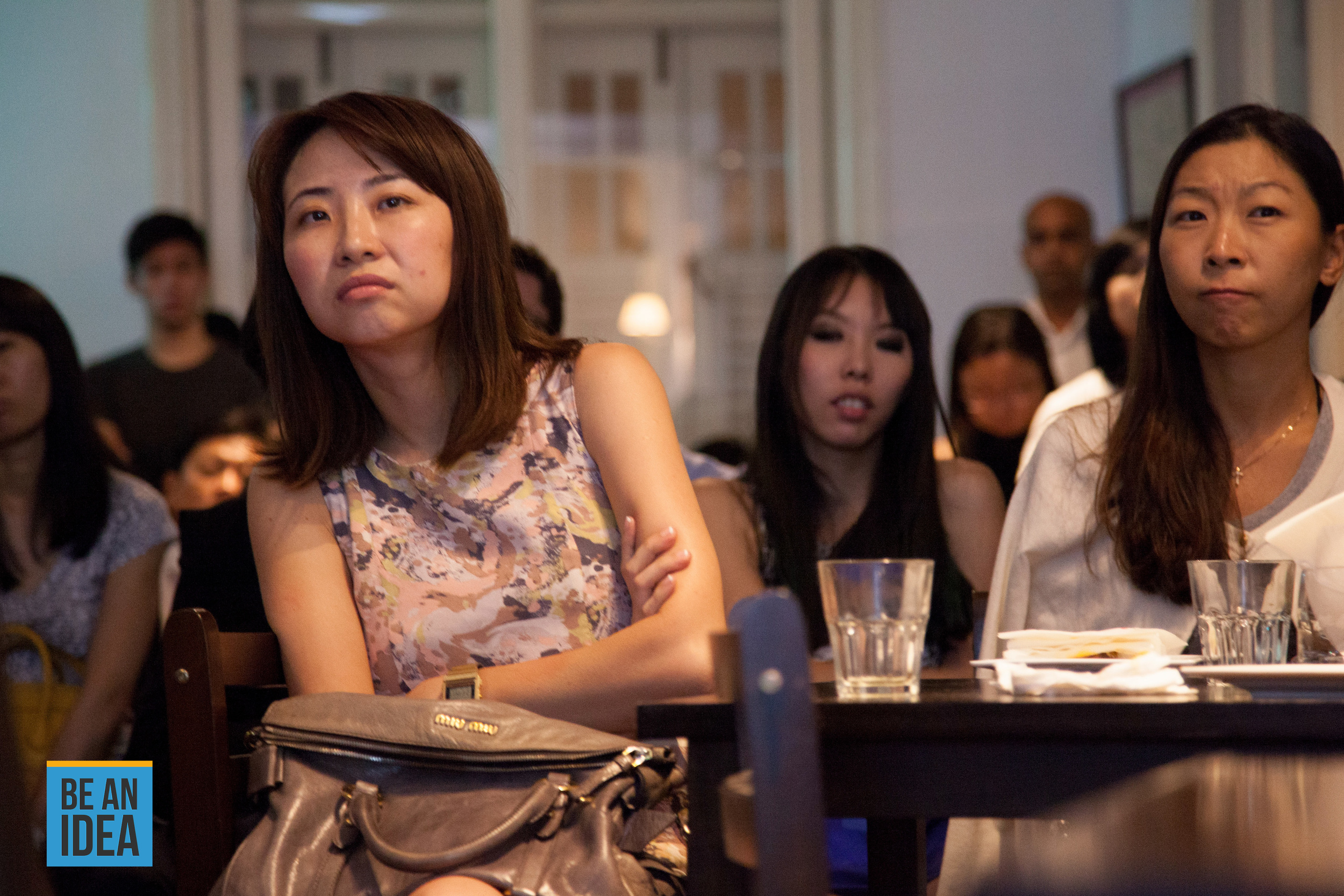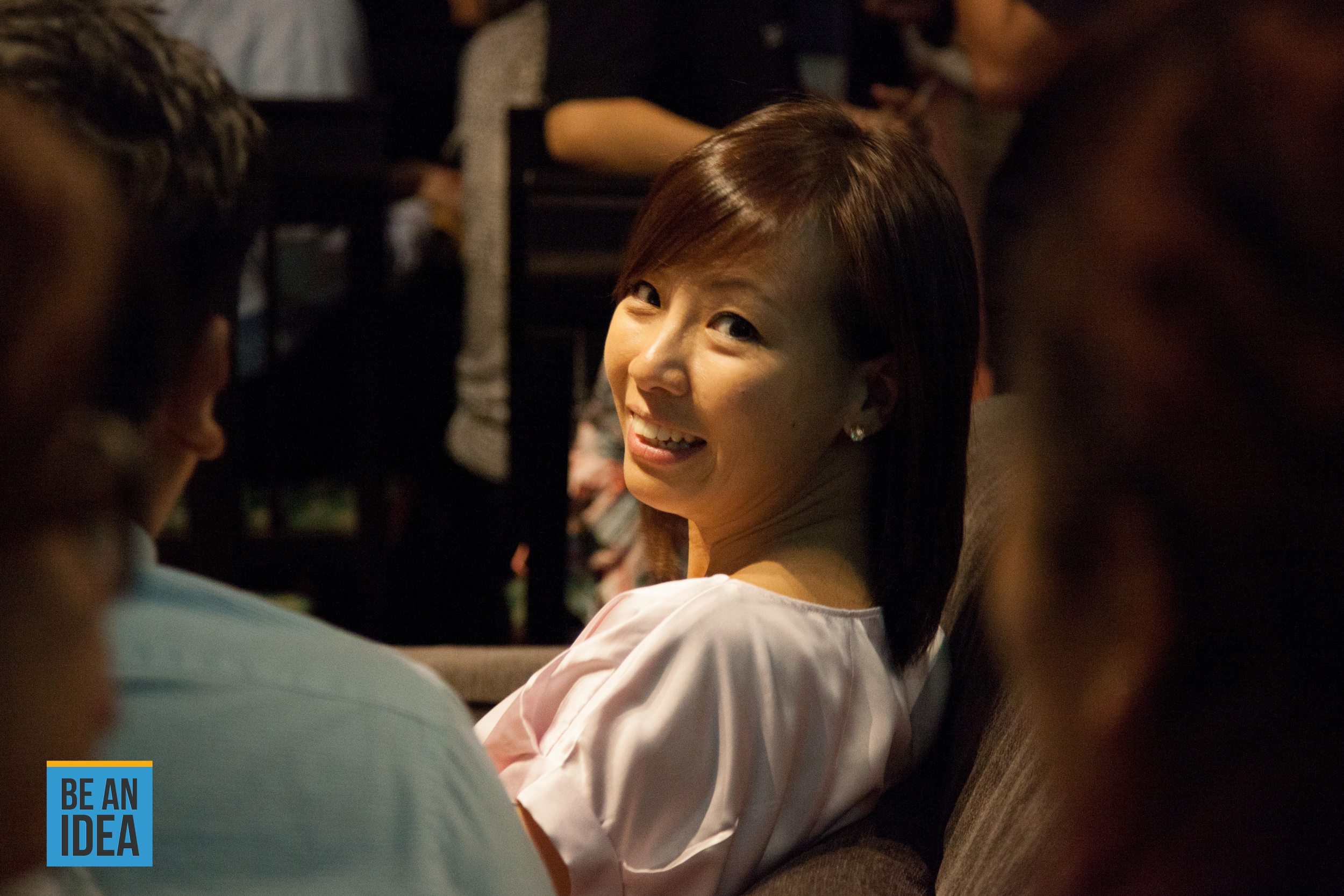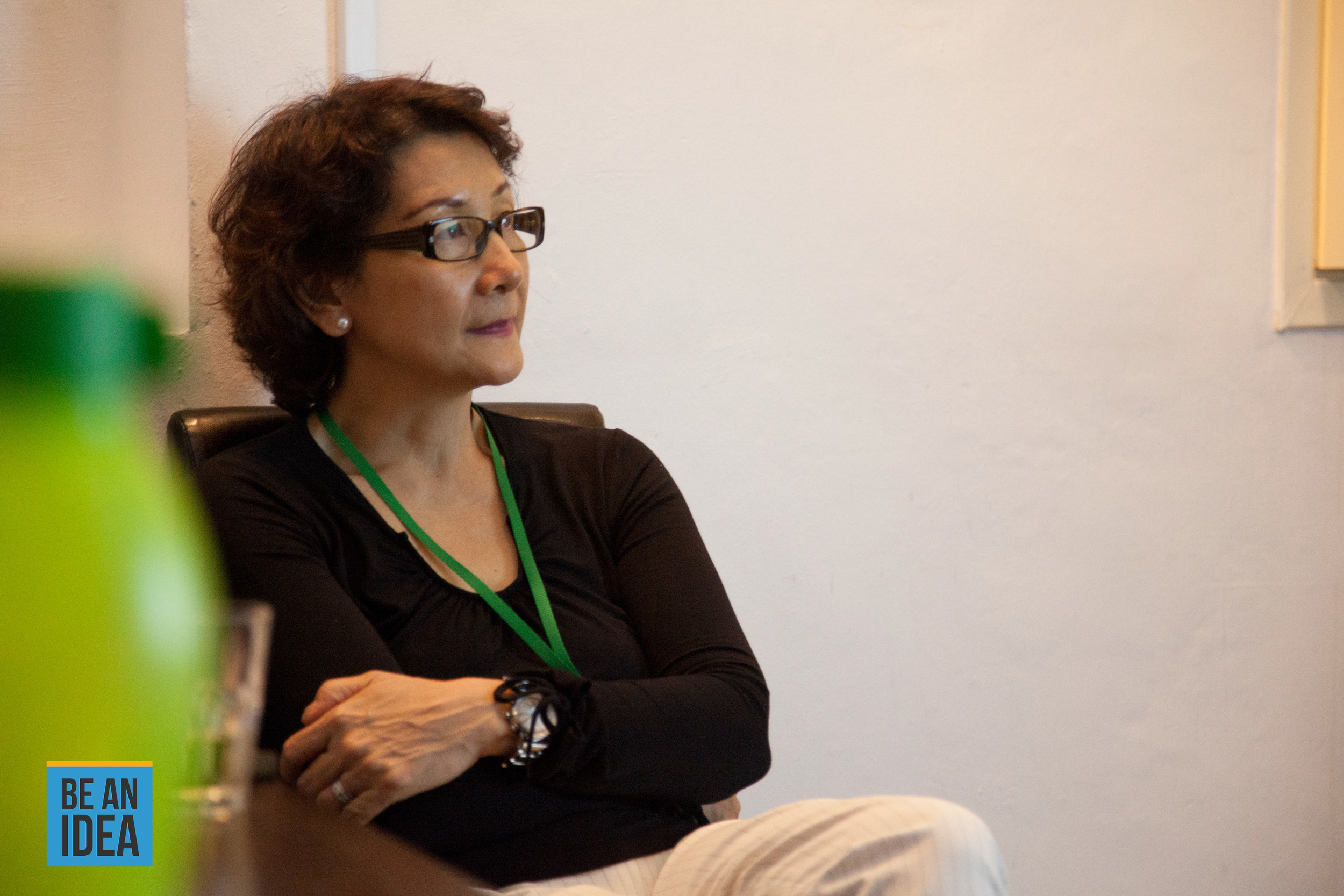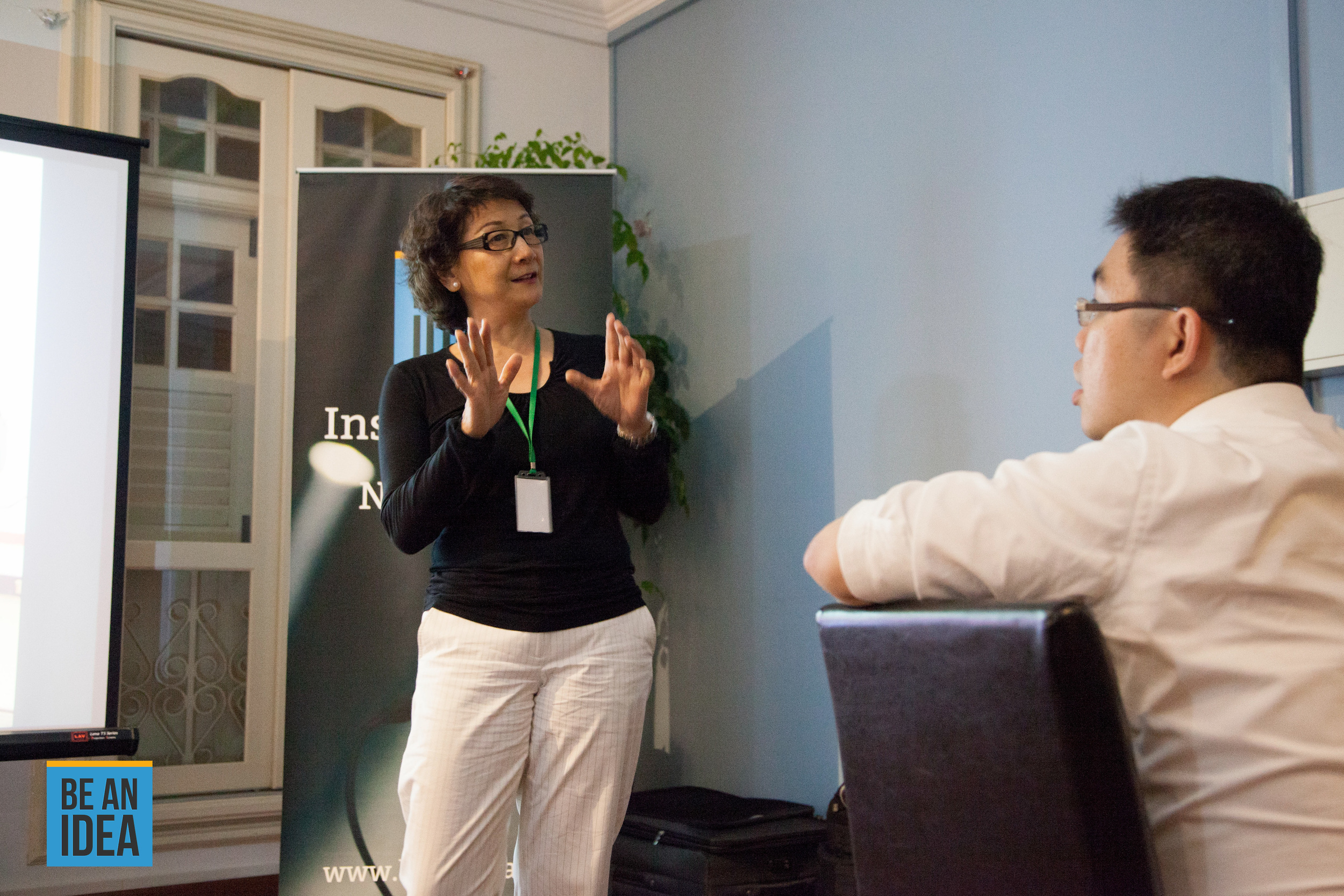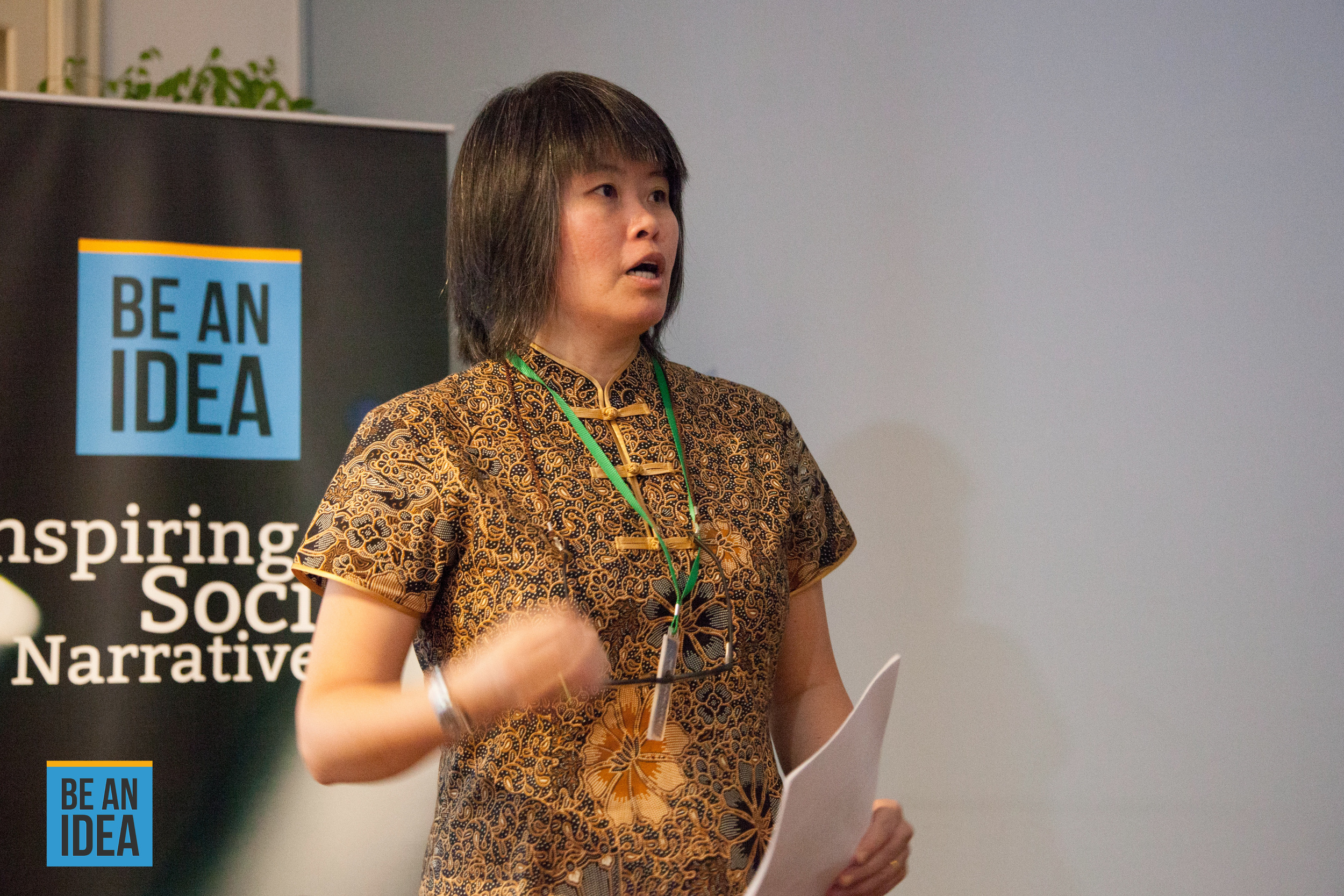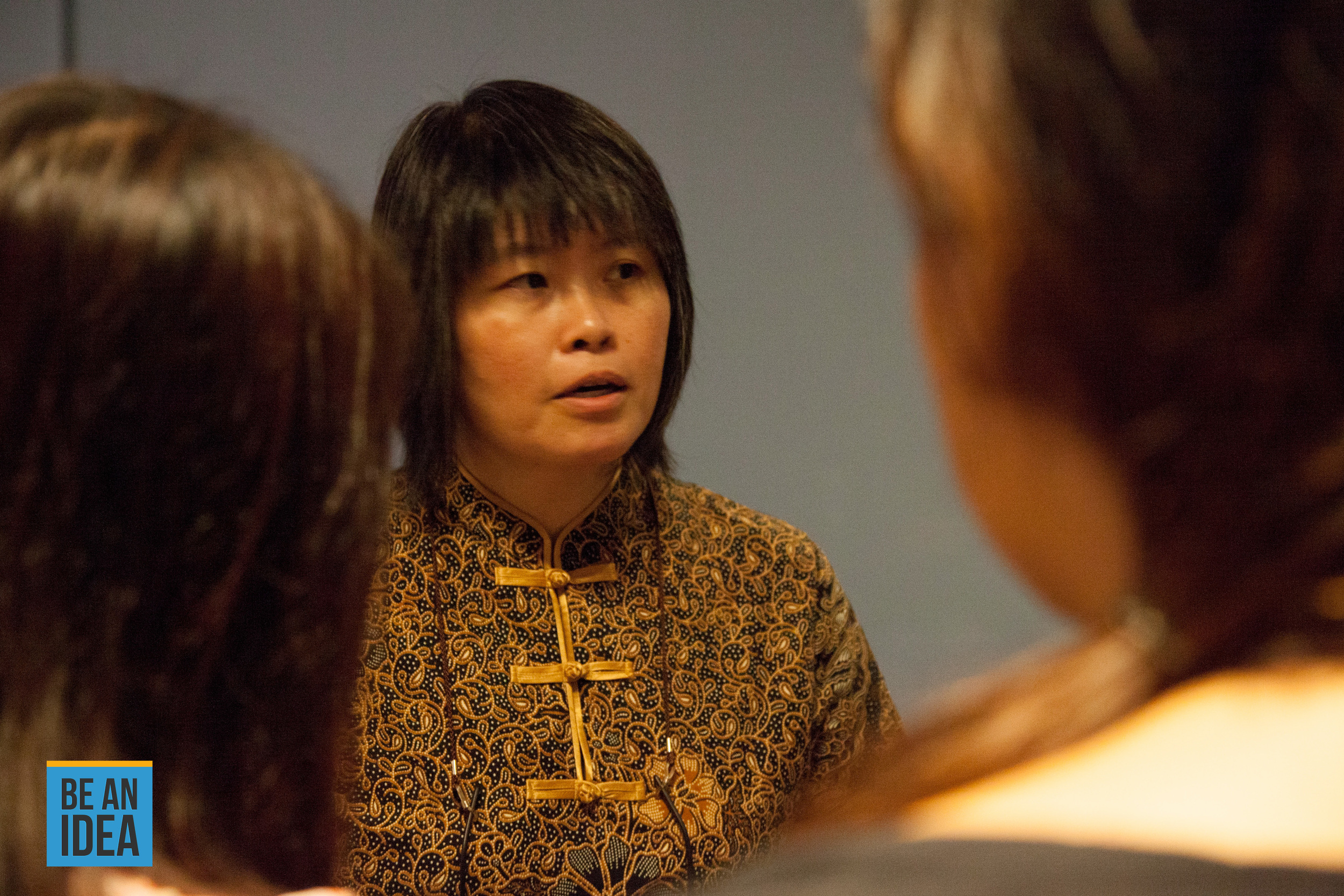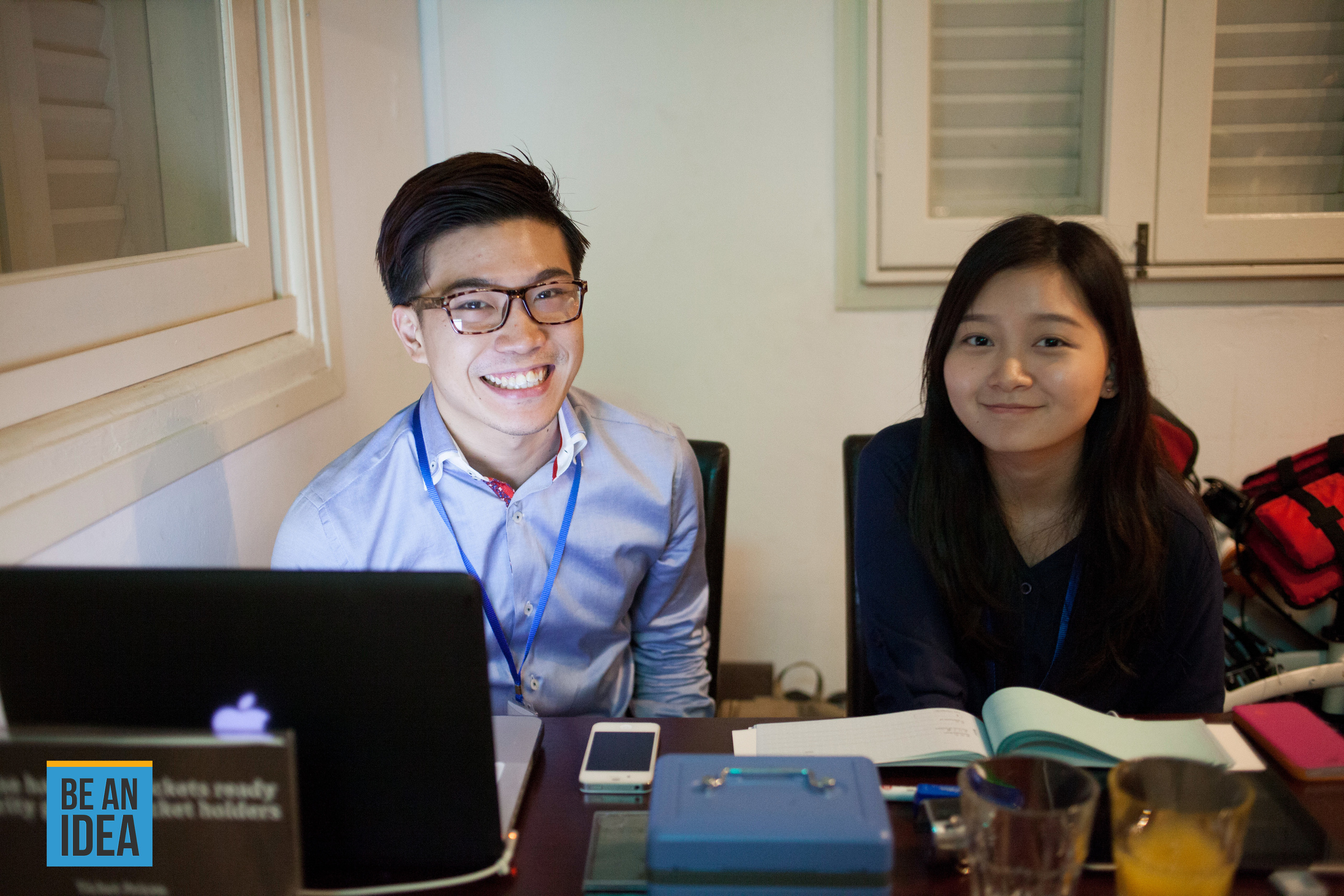The third chapter of Be An Idea’s Vision kicked off last Wednesday evening on the top floor of Lime House, one of the many trendy restaurants that have emerged along Keong Saik Road over the last few years.
Part of an effort to inspire social narratives in Singapore, Vision takes place once a month, with a variety of socially inclined individuals taking the helm. This program featured a series of six speaker sessions, with a short break following every two. Run in the style of Pecha Kucha, each speaker was allotted 20 slides with 20 seconds per slide, giving them a total of six minutes and 40 seconds to present.
In this chapter, the organizations ran along the themes of trafficking, migrant rights, women’s rights, animal welfare, and education, serving an eclectic mix of causes for an audience eager to learn more about doing good, and doing it well.
The night started off with Debbie Fordyce from Transient Workers Count Too (TWC2), a pioneer local organization dedicated to the rights of migrant workers. Debbie recounted testimonies of workers’ experiences here, from medical neglect to physical abuse. She stressed the need to pay attention to this marginalized community, an issue that has slowly risen in the public’s agenda, no small part due to the Little India riots of 2013.
In a similar vein, Sylvia Lee from EmancipAsia, devoted to ending human trafficking through advocacy and research, espoused on the unseen exploitation of workers in an economy highly dependent on labor. EmancipAsia focuses on the needs of both labor and sex trafficking victims, the latter a complex term that was the focal point of Vanessa Ho’s talk about the rights of sex workers. One of the leaders of Project X, Vanessa shed some light on the grey area between coercion and consent that many sex workers in Singapore find themselves in, and the various grassroots efforts Project X has been organizing in order to reach out to this hidden community. The three organizations, each devoted to various aspects of labor and migration, offered a holistic outlook on the gaps in Singapore’s system and what could be done to fill them.
The evening was interspersed with two talks on animal rights by Eunice Nah from Agency for Animal Welfare (AAW) and Fwah Hui Bin from Animal Concerns Research & Education Society (ACRES). They asked the audience to consider scientific evidence that animals have felt physical pain as well as complex emotions, and highlighted the importance of empathy for animal counterparts. Some of the action steps included simple changes such as taking the initiative to not eat meat once a week or once a month, or to not use products made after animal testing, or using animal skin. Their campaigns focused on the unnecessary abuse of animals in a modern society that offers many alternatives.
Shalabh Pandey offered a new dimension to the night with his media start up for children, The Whiz Times, which was inspired by his two daughters. Unsatisfied with the lack of alternatives to children-friendly media, Shalabh devotes his time to programming a media platform that crafts thoughtful learning and entertainment.
The stories that were told on Wednesday were not simply highlights of respective causes; they are part of a bigger movement to build passionate community, and drive forward a Singapore that cares.


